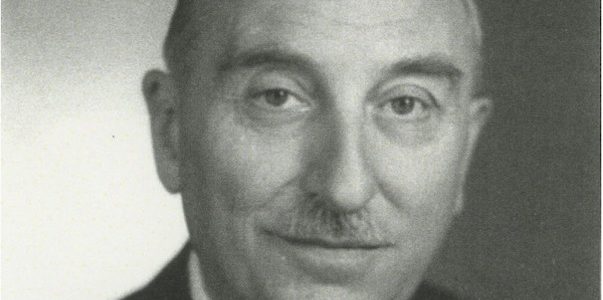
2019 Heartland Film Festival: ‘Syndrome K’ ★★½
For tickets/showtimes or more information about Heartland Film Festival, please click:
By Bob Bloom
“Syndrome K” has a compelling story to tell, but the way it goes about it dilutes this documentary’s impact.
This historical feature relates how three doctors working in a Roman Catholic hospital run by the Vatican created a fake disease as a ploy to save as many of Rome’s Jewish people as possible.
The doctors’ described the fake ailment as a “highly contagious, highly fatal … disease, most commonly found in Romans of Jewish descent.”
The film, which mostly covers events from 1943 through the Allied liberation of Rome in 1944, centers not so much on Syndrome K itself, but on the doctors who created it, their relationship with the Vatican and the various ploys used by the medical staff to rescue Jews from the clutches of the Nazi SS after the German Army took control of the city.
To its detriment, the manner in which the documentary is put together undercuts its potential. Recreations and scenes from post-World War II, neorealism Italian films, such as “Open City,” are overused and mixed with archival footage and talking heads to explain events in Rome during the war and occupation.
This soon becomes a distraction, especially in a film that is a mere 72 minutes in which some of the same footage is repeated.
It is the old survivors — and children of other people involved — who carry the movie. They do more than extol the courage of their fathers and citizens, but also put the Jews’ status and the Vatican’s position during the war into context.
Pope Pius XII has been criticized for keeping silent about Germany’s genocide of European Jewry. But, as some survivors explain, Pius, was more than the spiritual leader of the Roman Catholic Church. He also was the political leader of a sovereign nation — the Vatican.
He had to maintain a delicate balance, realizing that if he publicly rebuked Adolf Hitler, it would put the Vatican in jeopardy.
According to some interviewed for the movie, Pius made private pleas to the German government about showing mercy to Jews, especially those who live in Rome. But his messages were ignored.
While the pope did not act, others, including priests and nuns, did. Doctors at the Fatebenefratelli Hospital, which was built on Vatican property and thus was overseen by the papacy, were the ones who created Syndrome K.
They also quietly — and without Vatican approval — helped the resistance in Rome. Jews who came to the hospital were “diagnosed” with the illness and given hospital beds. After a few weeks, they were funneled to churches, monasteries and convents around Rome where they were given sanctuary until the liberation.
What is most interesting about “Syndrome K” is that members of the SS, including officers and the group’s own doctors, were hoodwinked. Even when they raided the hospital, they did not go far into the isolation ward housing “patients” with the illness.
It turns out, one of the phobias of a vast majority of these “elite” SS units was coming into contact with sick patients.
The number of Jews saved by these humanitarians was relatively small in the overall context of the murder of 6 million people. But even the saving of one life is a blessing that humanity should cherish.
“Syndrome K” offers inspiration, but its power is offset by the sloppy manner in which it presented. I appreciate eyewitness accounts and the use of archival film but going beyond that negates some of the documentary’s muscle.
I am a founding member of the Indiana Film Journalists Association. My reviews appear at ReelBob (reelbob.com) and Rottentomatoes (www.rottentomatoes.com). I also review Blu-rays and DVDs. I can be reached by email at bobbloomjc@gmail.com or on Twitter @ReelBobBloom. Links to my reviews can be found on Facebook, Twitter and LinkedIn.
SYNDROME K
2½ stars out of 4
Not rated